A lobbyist by any other name
Public perceptions of the politicos of persuasion (and some data on who they are in Florida)
Shakespeare may have maintained that “a rose by any other name would smell as sweet" – but when it comes to lobbying, it seems the name makes all the difference. Call someone a "lobbyist" and people bristle. Call them a "government relations consultant" or "public affairs consultant," and suddenly the balance tips toward being a respected professional navigating the complexities of policy.
Think that’s just spin? Nope – it’s what the data shows. A survey experiment we ran with a random sample of Florida voters reveals that people instinctively hold negative perceptions of lobbyists. However, when the same job description is presented under different titles, impressions improve significantly.
When randomly assigned to see the name of only one profession before judging it, just 9% of those who saw “lobbyist” viewed it positively, while 22% felt neutral and an overwhelming 69% held a negative view. Just 25% rated “public affairs consultant” negatively, 31% felt that way about “government relations consultant,” and 35% did the same for “legislative strategist.” Indeed, of all the job titles we tested, only “policy influencer” came close to the negativity directed toward “lobbyist.”
This suggests that, for many, the term "lobbyist" itself carries baggage, regardless of the actual work being done. It seems it doesn’t take too many examples of flush lobbyists supposedly getting their way with elected officials, seemingly against the public interest, to sully the reputation of the entire profession.
What do people value about lobbying?
Despite the knee-jerk skepticism, telling people about the roles lobbyists play sends the positive impressions skyrocketing. Again using an experimental design, we showed respondents 1 of 3 messages about the activities of lobbyists, including:
(A) serves as a bridge between people and their governments through grassroots advocacy efforts that encourage participation in the political process;
(B) focuses on specialized issues that may not receive widespread public attention but are deeply important to specific communities; and
(C) provides research and reports to ensure that lawmakers are informed about the impacts of legislation on complex policy debates.
On average, after seeing one of these messages, 44% of respondents said they view lobbyists positively – a five-fold improvement over the low regard for the name of the profession by itself.
One function of lobbyists clearly rises to the top: research.
And no, we researchers didn’t cook the books on that one (despite our clear belief in the importance of data in policymaking).
In fact, we were so intent to avoid coming to any conclusions about this finding that we ran the question a second time using completely different sample, wording, and question structure. We still found the same thing: The public is most receptive to lobbyists when they’re described as experts who provide lawmakers with research and insight on complex issues.
Specifically, among those who saw the research message, 58% expressed positive views, compared with 41% of the “bridge/grassroots” group and 35% of the “specialized issues” group.
In our second iteration of the question, we asked respondents to consider four aspects of lobbying and rank them from most (1) to least (4) important. Once again, nearly half (47%) ranked research and data as most important, followed by bridging citizens to governments (33%), forming coalitions (11%), and specializing in niche policy areas (9%).
Clearly, research matters to how people view the role of lobbyists – and not just because arming lobbyists with data and research is in the wheelhouse of what we do at Sachs Media.
Who are the lobbyists of today?
Florida, like much of the country, has seen significant shifts in the lobbying landscape. Only 1 in 4 lobbyists currently registered in Florida were on the books 20 years ago. But those who have stuck around have thrived – those who have been trodding the halls of the Capitol since Jeb Bush was governor have, on average, twice as many clients (14.8) as their newer counterparts (6.7).
The profession is still predominantly male (60%), though less so than it was two decades ago (67%). Among those who have been lobbying for 20+ years, however, the percentage of men jumps to 75%, perhaps affirming that the profession’s gender disparity is only gradually and more recently shifting.
Meanwhile, local governments have upped their lobbying game. Cities and counties in Florida have expanded their lobbying presence over the past 20 years, despite the fact that the number of municipalities has remained relatively stable. In 2006, just 106 of Florida’s 400-plus municipal governments had a registered lobbyist, but that number has jumped to 180 today. County governments or agencies, for their part, also saw an increase – 149 in 2006 to 199 today.
On the flip side are associations. Though they’re still a powerhouse with 409 principals in Florida’s current lobbyist database, 54 fewer associations have one on board than they did two decades ago.
Realities beyond reputation
Public awareness regarding Florida’s lobbying laws is shockingly low. Only 7% of Floridians know that their state has the toughest lobbying laws in the nation. Just 8% realize that Florida enforces a six-year waiting period before former lawmakers can become lobbyists, and the same percentage recognizes that lobbyists must broadly disclose their compensation. Only 13% are aware of strict bans on lobbyist gifts to lawmakers.
Why does this matter? Because knowledge could shift public perception – if more people understood Florida’s rigorous regulatory framework, their views on the profession might soften.
One in 11 Floridians say they personally know a lobbyist, and 1 in 5 belongs to an organization that employs one. That said, Floridians appear significantly more familiar with lobbyists as portrayed through fictional sources – 4 in 10 (41%) say they’re familiar with at least one “TV” lobbyist.
The characters leading this list (Sam Seaborn of The West Wing, Sydney Ellen Wade of The American President, and Remy Danton of House of Cards) represent a mixed bag of honest idealism and ambitious opportunism. Then there’s Lex Luthor, cited by many others, who isn’t always portrayed as a lobbyist in the Superman universe but apparently has been one enough to earn this archvillain a spot on the Top 5 fictional lobbyists list.
Despite its strained reputation, lobbying is rightly and importantly embedded in the mechanics of government. These professionals play a key role in shaping policy, advocating for industries and causes, and ensuring that legislative decisions are informed by expertise and diverse perspectives.
Most Floridians (62%) agree that lobbying is necessary, and 63% agree that no one individual can have a direct relationship with every lawmaker. Most people don’t have a relationship with any.
Lobbying is the mechanism that connects the “collective” to the “action” in public policy advocacy, allowing individuals – through their respective groups – to make their preferences known.
So if a lobbyist by any other name is perceived more positively, perhaps the issue isn't the profession itself but the way it's framed. At its core, lobbying is about representation, expertise, and advocacy. And if that doesn’t smell as sweet as a rose, maybe it’s time for a rebrand.





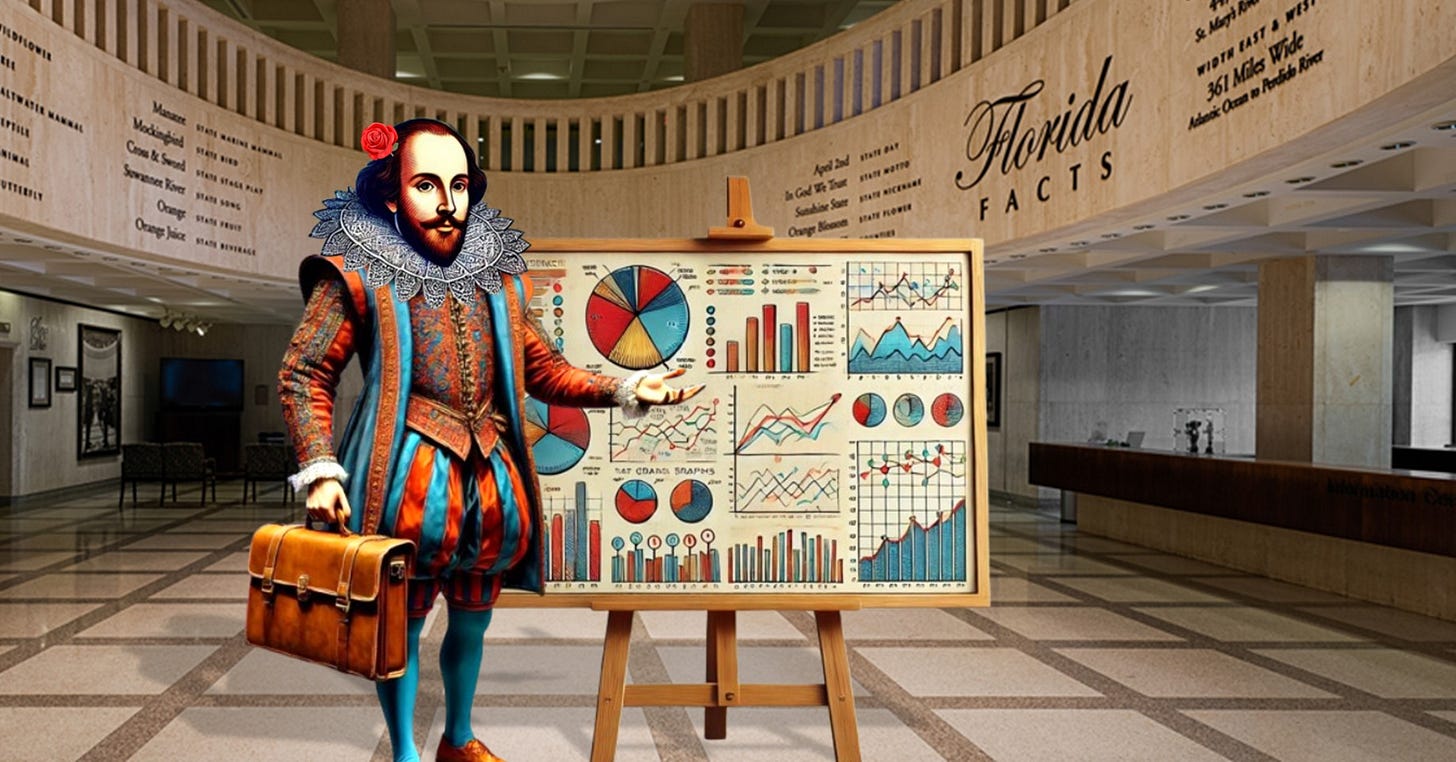
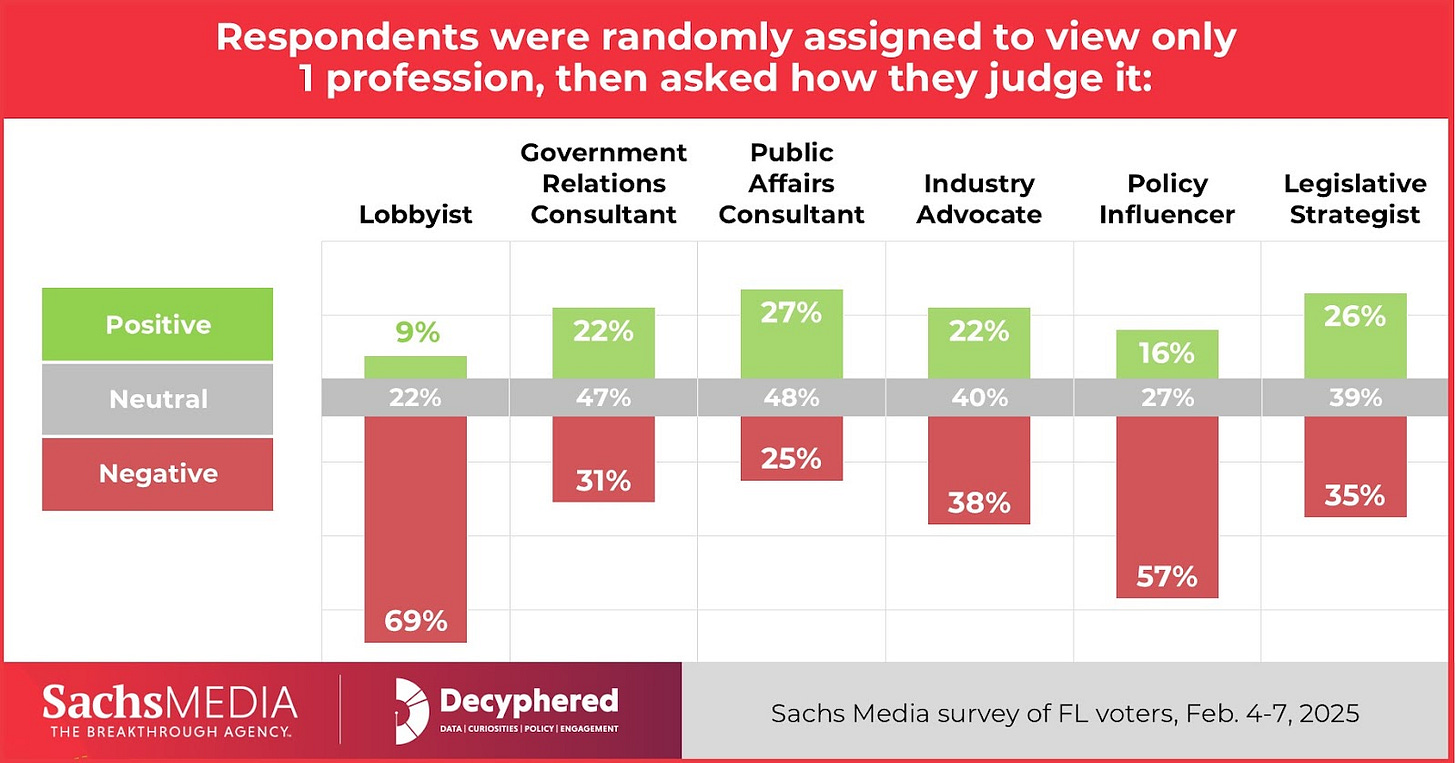
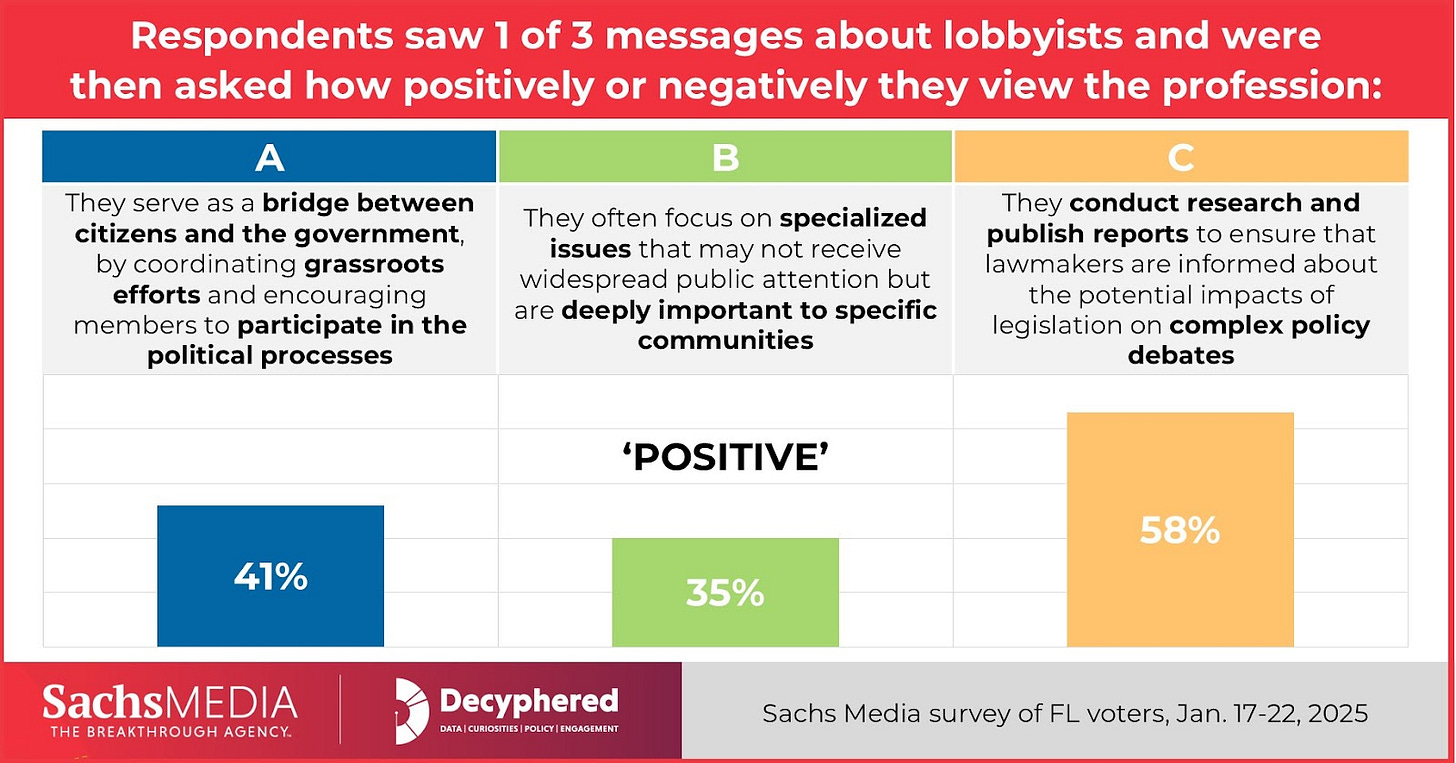
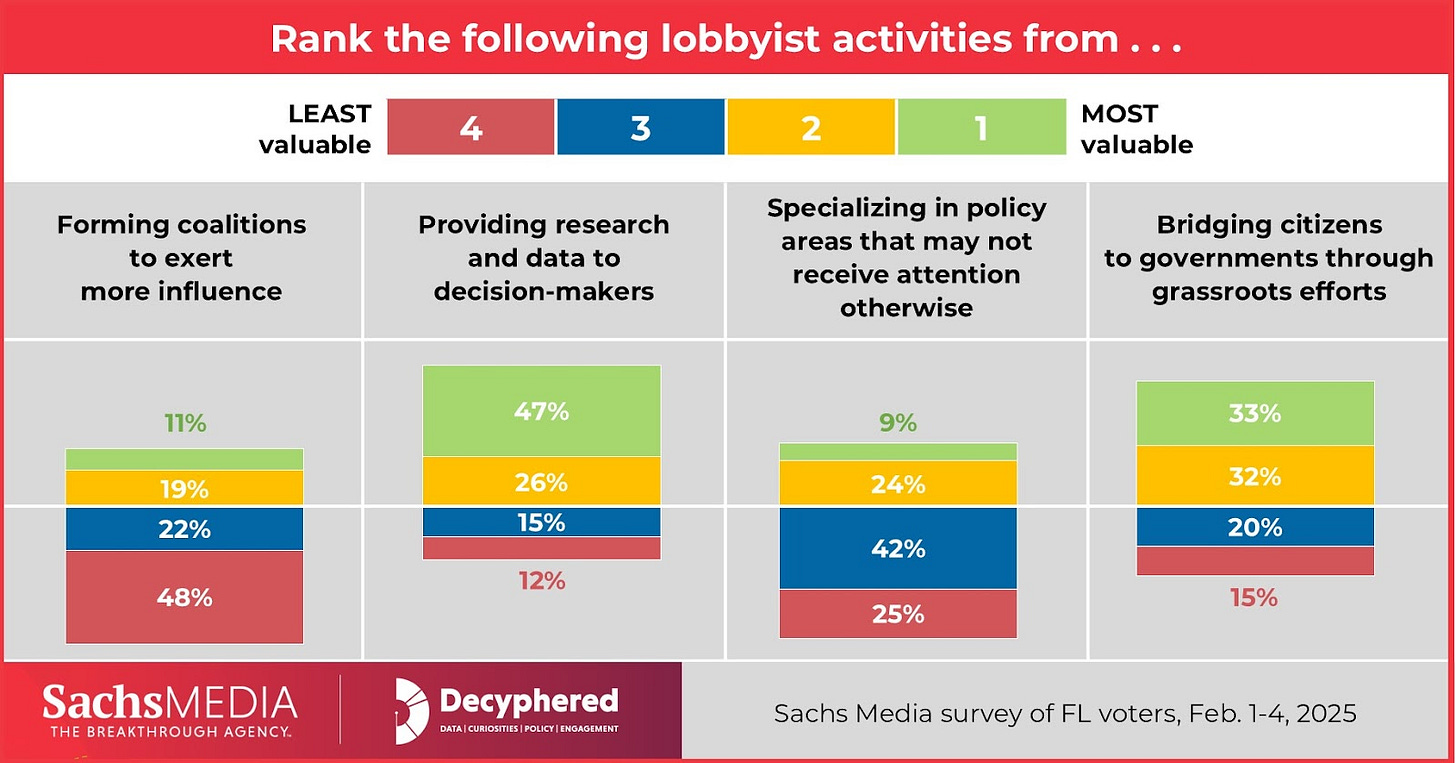
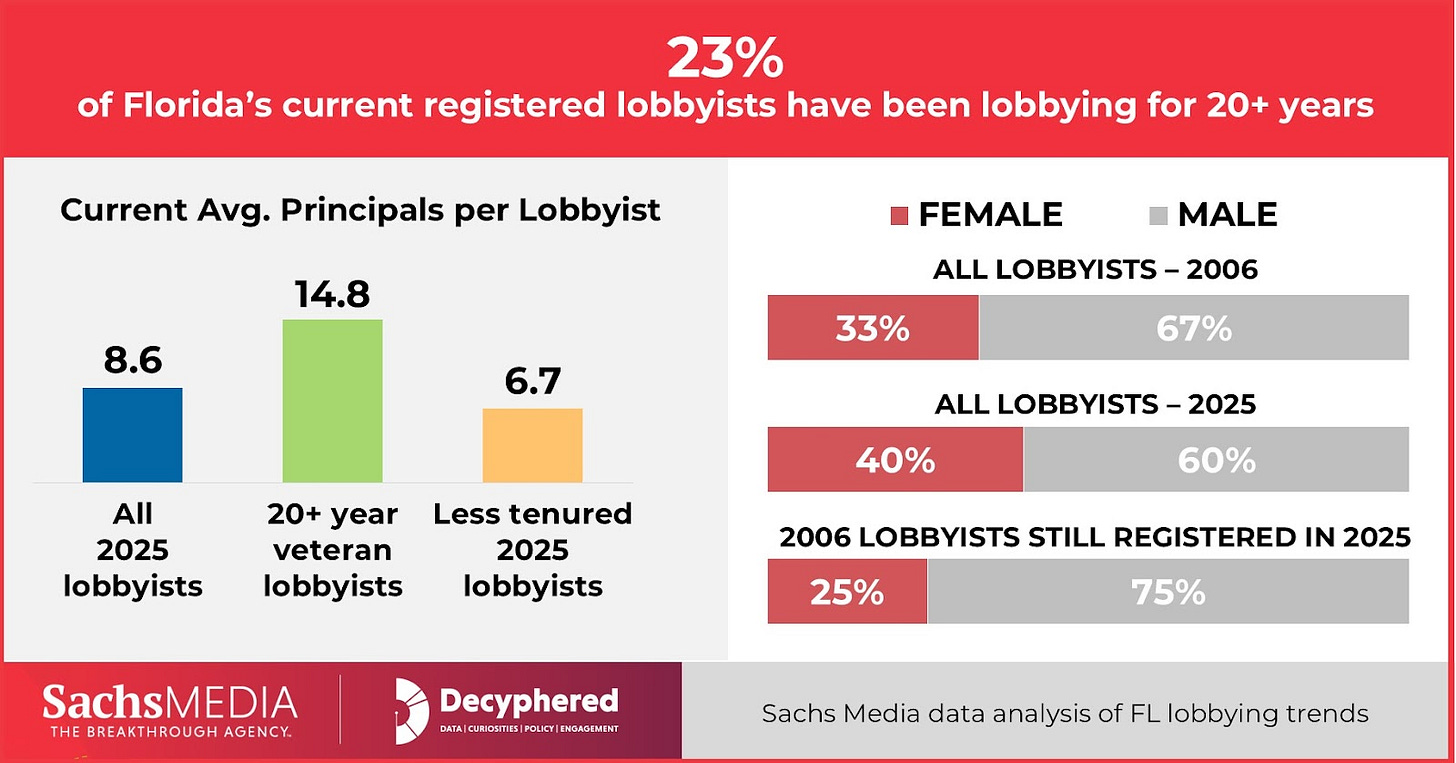
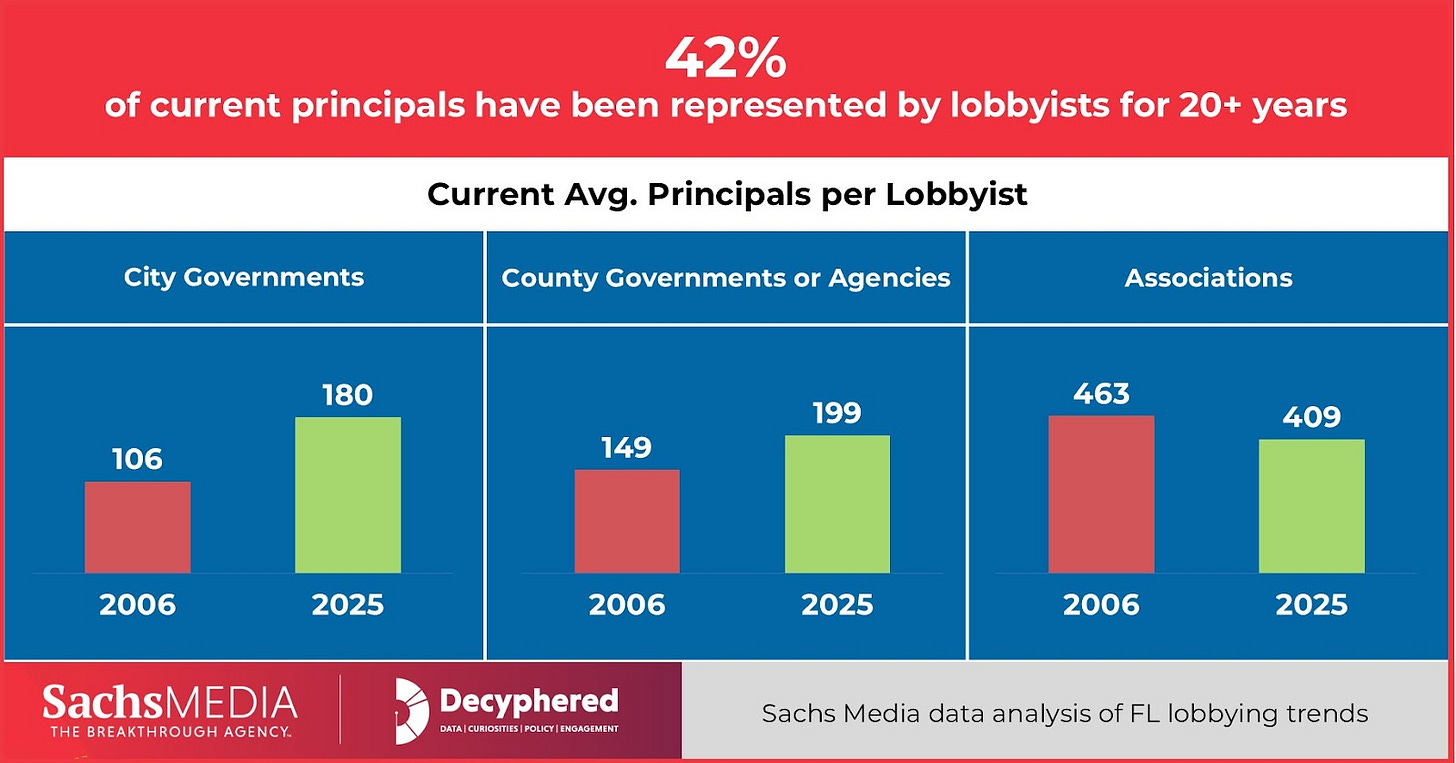
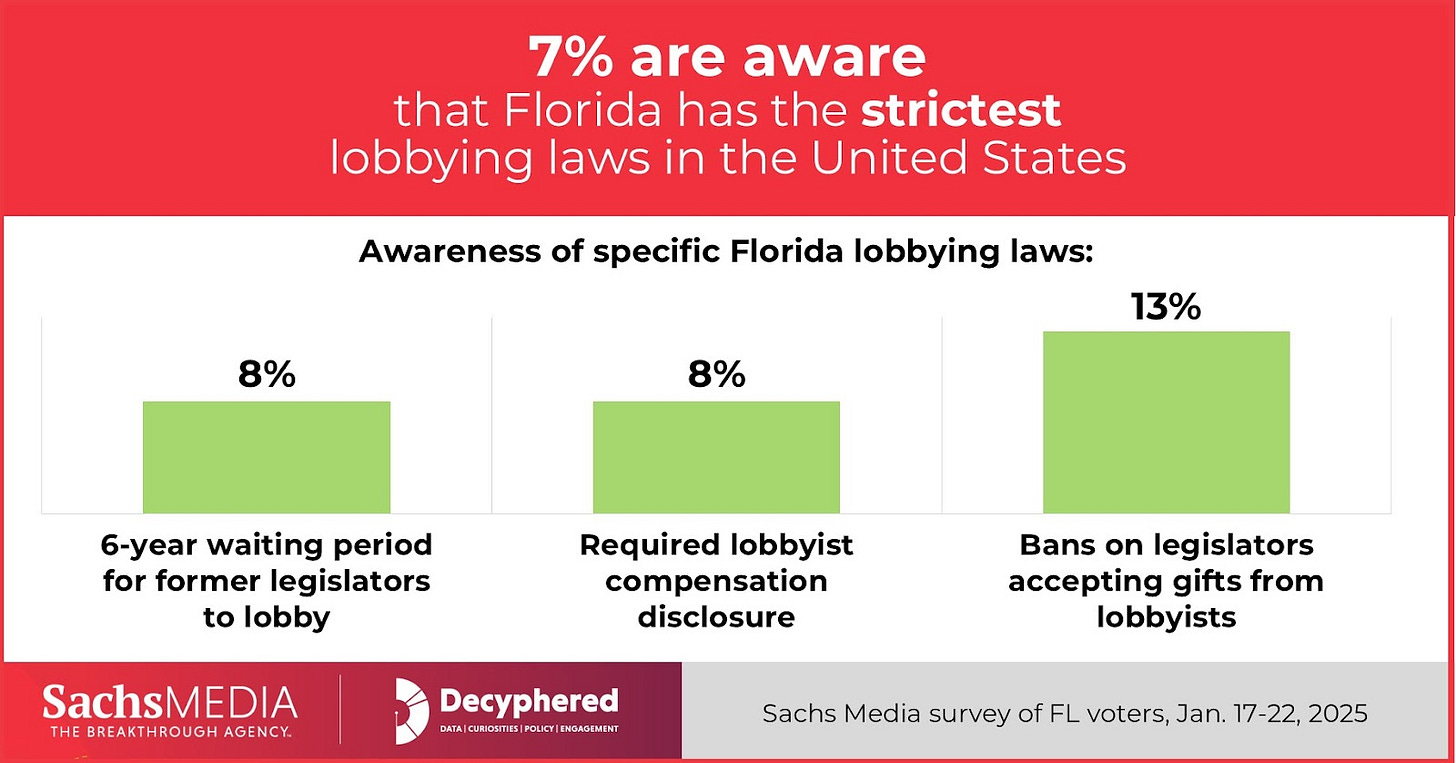
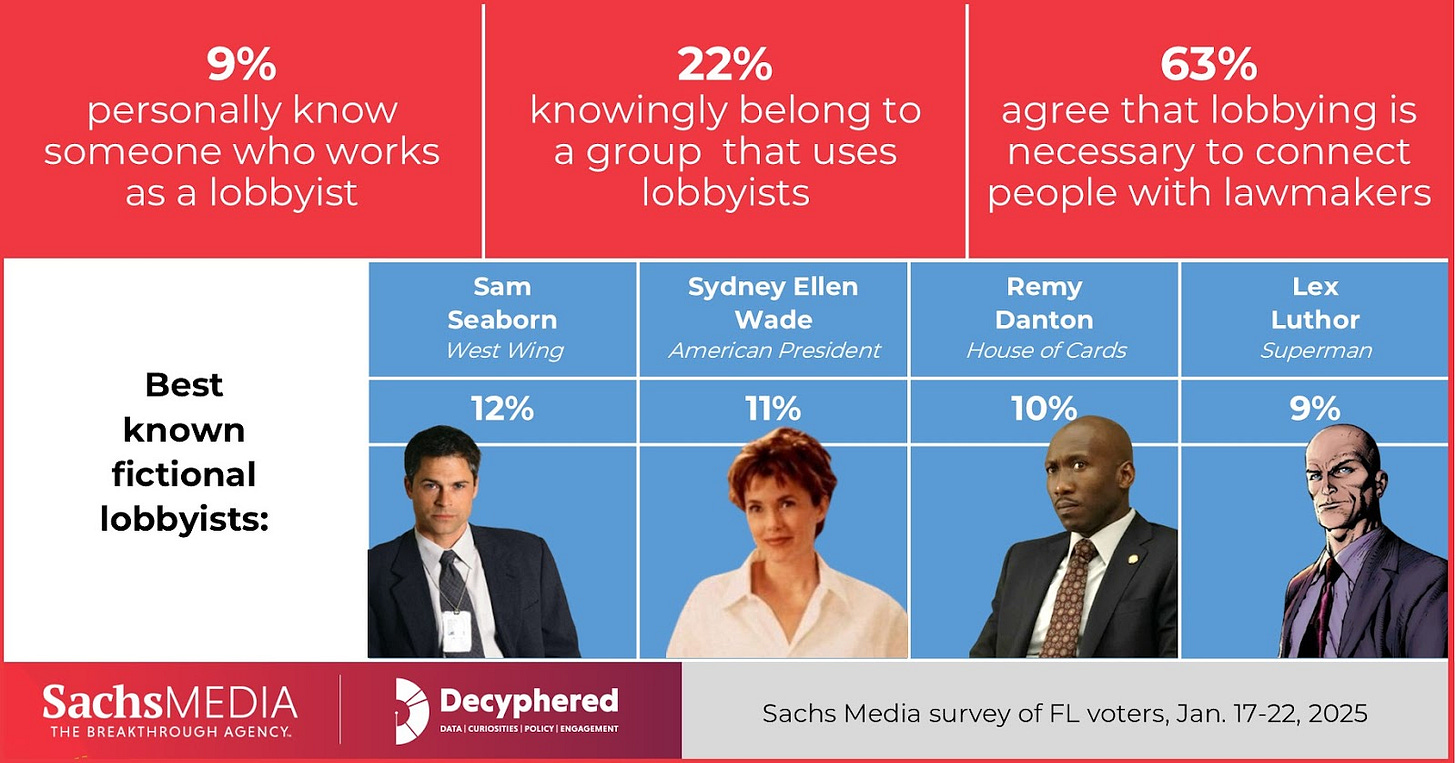
How much does a lobbyist cost?
Who hires lobbyists?
Data data everywhere.
NO.
Honestly, our country has been in a massive decline for the past 35 years. Lobbying helped screw everything up
A LOT!
Look around people.
Our government is a filthy mess!
Along with our country…. Filthy.
President Trump said ENOUGH.
And “we the people” agreed.
If we have the correct people in place, with courage. we wouldn’t need lobbyist would we?